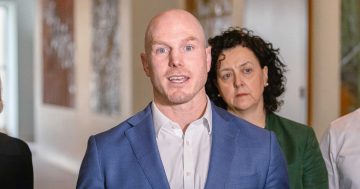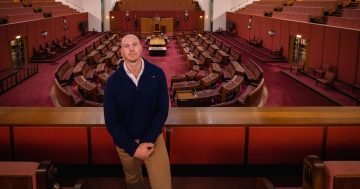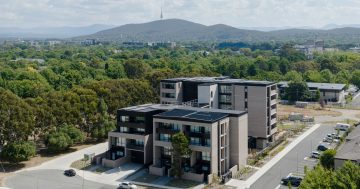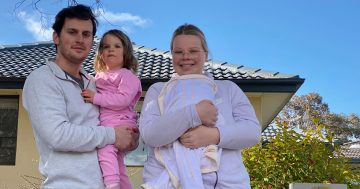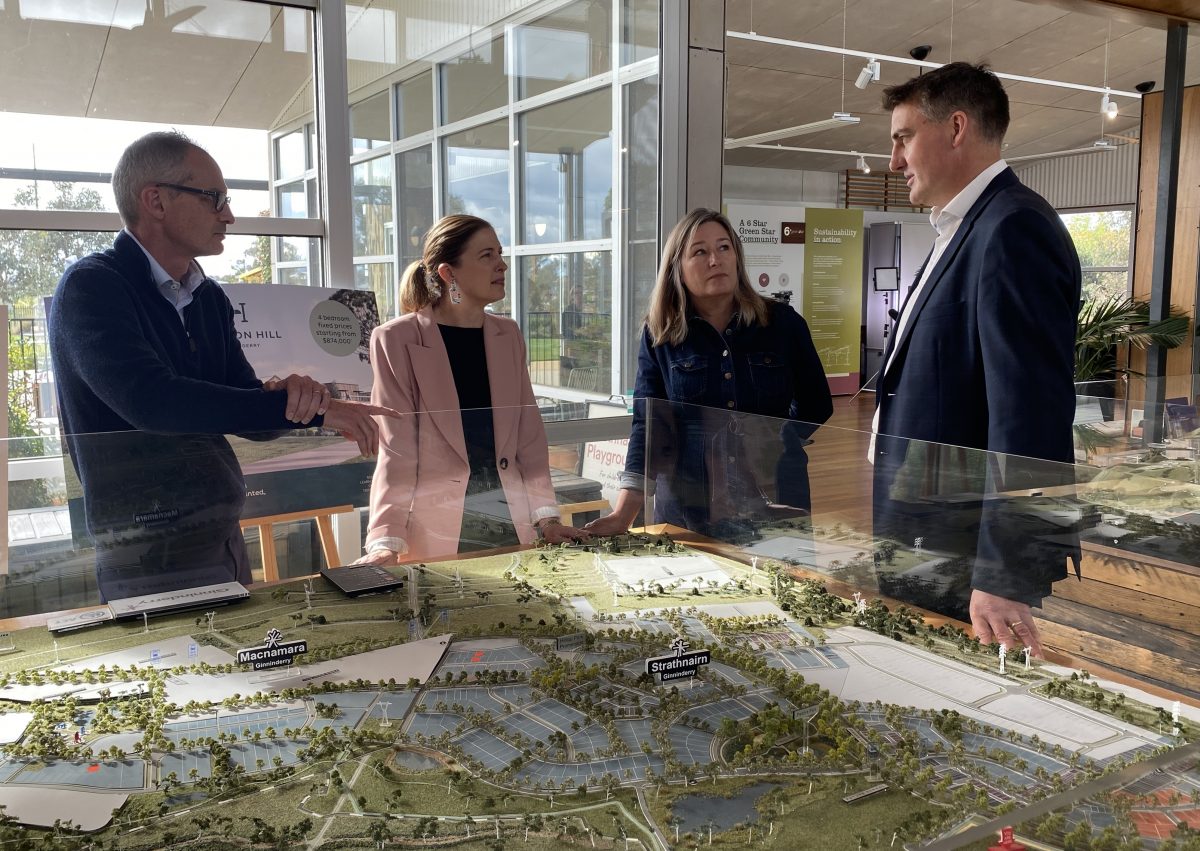
ACT Housing Minister Yvette Berry (second from right) and Federal Housing Minister Julie Collins with Ginninderry Project Director Stephen Harding (left), and CHC CEO Andrew Hannan at the recent announcement of the new Build-to-Rent-to-Buy pilot program. Photo: Claire Fenwicke.
The ACT will get more than double the number of social and affordable dwellings expected through the Albanese Government’s proposed housing investment fund under a deal struck with the Jacquie Lambi Network.
But the deal announced by federal Housing Minister Julie Collins hangs on the Greens coming to the party in the Senate, and Independent Senator David Pocock says the government still needs to do more, although he won’t stand in the way of the $10 billion Housing Australia Future Fund.
The deal means that each state or territory will receive a minimum of 1200 homes over the first five years of the fund.
“It’s now time for all Senators to back the $10 billion Housing Australia Future Fund ‑ the single biggest investment from a Federal Government in social and affordable housing in more than a decade,” Ms Collins said.
“Senators can’t say they support more social and affordable housing but oppose this fund.”
But that floor is not guaranteed, given the deal says Housing Australia will “take all reasonable steps” to reach those targets, and funding is dependent on sharemarket performance and the parlous state of the building industry, which is grappling with soaring costs and labour shortages.
The ACT was due to get about 540 new homes out of the fund over the five years, but that will now be about 1200, although Senator Pocock said the ACT was losing 1056 homes from the National Rental Affordability Scheme over the next three years, so this would be not much of a gain.
ACT Housing Minister Yvette Berry welcomed the announcement, saying it would build on the ACT’s program to provide a further 400 public housing homes and renew 1000 properties.
“It’s been a welcome conversation with the Federal Government about how we can improve affordable housing and affordable rentals,” she said.
“1200 is a significant commitment for the ACT and what we need is for that money to flow … so we can get homes built for those who desperately need them.”
Senator Pocock wants the government to double the size of the fund to better respond to the scale of the challenge, or at least increase it to $15 billion, noting the National Reconstruction Fund is $15 billion and the Medical Research Future Fund is $21 billion.
He says it should guarantee a minimum annual spend from the fund even if there is a poor year in the market like 2022 when the existing funds lost 1.5 per cent.
The minister should also be able to increase the current $500 million annual spending cap, so if the fund has a good year the government can spend more, and he said the cap should be indexed.
Senator Pocock said negotiations with the government had been frustrating because it seemed to ignore the evidence from housing and investment experts.
He remained concerned about the investment fund model. He said that to make a dent in the housing crisis, there needed to be changes to guarantee funding.
“I’ve been saying to them, listen to the experts, the community housing providers, the future funds,” he told the ABC.
“We hear so much about how the super funds are going to invest in social and affordable housing. They’re all saying you’ve got to index this fund for it to work.”
The pressure is now on the Greens, who oppose the off-budget fund model, to support the legislation next week in the Senate.
They want $5 billion of direct spending on housing and a national rent freeze but say they are prepared to negotiate in return for more guaranteed investment in housing.
All eight state and territory housing ministers have written to senators urging them to pass the bill, warning that the delivery of badly needed new housing would be at risk.
The fund will help deliver the government’s commitment of 30,000 new social and affordable rental homes over five years.
Next week’s budget will provide an additional $2 billion in financing for more social and affordable rental housing by increasing the guaranteed liabilities of Housing Australia and offering incentives to increase the supply of build‑to‑rent accommodation.
The government is also widening the remit of the National Housing Infrastructure Facility, making up to $575 million available to invest immediately in social and affordable rental homes and providing an extra $67.5 million to states and territories to help tackle homelessness.














